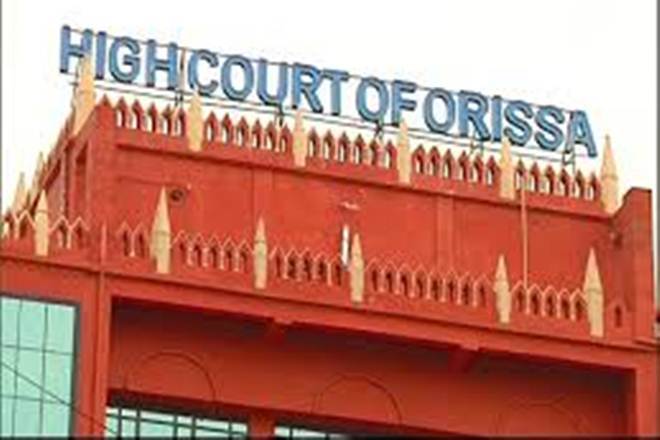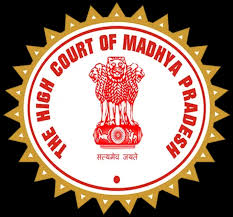@JUDGMENTTAG-ORDER
P.S. Narayana, J.@mdashThese two Criminal Petitions are filed by one Mukesh Gupta - Accused No. 14 in C.C. No. 1814/98 and C.C. No. 1321 of 1998 on the file of XXIII Metropolitan Magistrate, City Criminal Courts, Hyderabad.
2. The 1st respondent - complainant filed the above cases stating that the petitioner - Accused No. 14 also had committed the offence u/s 138 r/w. Section 142 of the Negotiable Instruments Act, 1881, in short hereinafter referred to as "Act". The allegations made in C.C. No. 1814/1998 are to the effect that the 1st respondent - Accused No. 1 Company, represented by Accused No. 2, availed bill discounting facility with the 1st respondent to a tune of Rs.25,00,000/- and requested the 1st respondent for discounting the bills of M/s. Sun Farm Dairies - Accused No. 5, for Rs.25,00,000/- for a period of 90 days which has fallen due or payment on 20-4-1997. It is further alleged that the accused had executed a promissory note dated 20-1-1997. It was also averred that the 1st respondent paid a sum of Rs.25,00,000/- and towards discharge of its liability the Accused No. 1 Company issued a cheque for a sum of Rs.25,00,000/- which was returned on the ground of "Funds insufficient".
3. The allegations in C.C. No. 1321/98 also are substantially the same, except for the difference of amount of Rs.30,00,000/-.
4. In both these matters, the petitioner had filed these Criminal Petitions u/s 482 of the Criminal Procedure Code, hereinafter referred to as "Code" in short, on the ground that no where in the complaint it had been stated that the petitioner was in charge of the day-to-day affairs of the Company or that the petitioner had any liability or responsibility to discharge while the impugned cheques were issued.
5. Ms. Monikapole, learned Counsel representing Sri Milind G. Gokhle, the learned counsel for the petitioner had drawn my attention to paragraph 4 of the plaint in both the cases and had submitted that in the absence of a specific allegation, the complaint u/s 138 r/w. Section 142 of the act as against the petitioner - Accused No. 14 is not maintainable since the ingredients are not satisfied and hence the said complaints in both the cases are liable to be quashed so far as it relates to petitioner - Accused No. 14 is concerned. The learned counsel also had placed strong reliance on the decisions in K.P.G.NAIR Vs. JINDAL MENTHOL INDIA LTD. 2002 SCC 1038, SECUNDERABAD HEALTH CARE LTD., Vs. SECUNDERABAD HOSPITALS PVT. LTD. 2001 (1) AN.W.R. 23 (DCC) (A.P.), S.S. INDUSTRIES AND ENTERPRISES LIMITED Vs. BIRLA FINANCE LIMITED 2001 (1) ALD 757 (MAD.), G.L. MODI Vs. XEDD FINANCE AND INVESTMENTS PVT. LTD. 1999 (2) ALT 170 (A.P.), SUNIL KUMAR CHHAPERIA Vs. DAKKA ESHWARAIAH 2001 (1) ALD 633 (A.P.).
6. Sri V.S. Raju, the learned counsel representing the 1st respondent - complainant had submitted that there is a Board resolution and in view of the same all Directors are liable and hence the complaint is perfectly maintainable as against this Director also. The learned counsel further submitted that notice had been issued on 7-7-1997 and the petitioner had not chosen to reply and this itself shows that he has been in charge of the day-to-day affairs and hence it cannot be said that he is not liable to be prosecuted. The learned counsel also had drawn my attention to allegations in the complaint and had submitted that the allegations are to be read as a whole to see whether the ingredients are satisfied or not, and at any rate, these are all matters to be decided at the time of trial and it is not a case for exercising the power u/s 482 of the Code. The learned counsel also had drawn my attention to paragraphs 4 and 5 of the complaint where it was specifically stated that Accused Nos. 2 to 14 are guilty of the offence u/s 138 of the Act. The learned counsel also had elaborately argued about the limitations while exercising the power u/s 482 of the Code.
7. Sri M.A. Khadeer, the learned Additional Public Prosecutor also had advanced arguments relating to the limitations of this Court while exercising the inherent powers.
8. Heard the counsel on record.
9. The relevant portion of the complaint reads as hereunder:
"The complainant further submits that the Accused No. 2 to 4 and 6 to 14 are Directors/Officers of the Accused No. 1 Company and accused No. 5 is the Drawer of Bills of Exchange. It is further submitted that the Accused No. 2 to 14 connived with each other and issued the above cheques bearing No. 879132 dated 20.06.97 and 879133 dated 20.06.97. Accused No. 2 to 14 have neglected in honouring the cheques and therefore the Accused No. 2 to 14 are deemed to be guilty of the offence committed u/s 138 of the Negotiable Instruments Act. In addition to the above, Accused No. 3 and 4 are authorized Signatories to operate the Bank Account of Accused No. 1 Company."
10. The allegations made in the complaint are general allegations and there is no specific allegation as against the petitioner - Accused No. 14, except the allegation that Accused No. 2 to 14 have neglected in honouring the cheques and therefore accused No. 2 to 14 are guilty of the offence u/s 138 of the Act. In TIRUCHANDOOR MURUHAN SPINNING MILLS PRIVATE LIMTIED AND OTHERS Vs. MADANLAL RAMKUMAR COTTON AND GENERAL MERCHANTS, 2002 (6) K.L.J. 139, the Division Bench had elaborately considered the aspect of inherent powers u/s 482 of the Code. In
11. Several of the facts are not in dispute. But the main controversy is relating to the fact that in the absence of an averment or an allegation in the complaint that a particular Director has been in-charge and responsible to the over all conduct of the business, the complaint can be maintained or not under Sections 138, 141 and 142 of the Negotiable Instruments Act. Section 141 of the Negotiable Instruments Act, 1881 reads as hereunder:
Offences by Companies:- (1) If the person committing an offence u/s 138 is a company every person who, at the time the offence was committed, was incharge of and was responsible to, the company, for the conduct of the business of the company, as well as the company, shall be deemed to be the guilty of the offence and shall be liable to be proceeded against and punished accordingly.
12. Provided that nothing contained in this sub-section shall render any person liable to punishment if he proves that the offence was committed without his knowledge, or that he had exercised all due diligence to prevent the commission of such offence.
(2) Notwithstanding anything contained in sub-section (1), where any offence under this Act has been committed by a company and it is proved that the offence has been committed with the consent or connivance of, or is attributable to, any neglect on the part of any Director, Manager, Secretary or other officer of the company, such Director, Manager, Secretary or other Officer shall also be deemed to be guilty of that offence and shall be liable to proceeded against and punished accordingly.
Explanation: For the purpose of this section -
(a) ''Company'' means any body corporate and includes a firm or other association of individuals, and
(b) ''Director'' in relation to a firm, means a partner in the firm.
13. A reading of sub-section (1) of Section 141 of the Act would clearly show that when the offence is committed by a Company u/s 138 of the Act, every person who at the time the offence was committed was in-charge and was responsible for the Company for conduct of the business of the Company as well as the company, shall be guilty of the offence and liable to be proceeded against and prosecuted and punished in accordance with law. In the complaints filed in both these cases, there is no such specific allegation or averment as against the petitioner -Accused No. 14. It may be true that there may be Board resolution and it may also be true that notice might have been given and there is no reply from the petitioner - Accused No. 14. But it is pertinent to note that unless specific allegations and averments satisfying the ingredients of the provisions of the Act are available in the complaint, it is needless to say that such complaints are not maintainable u/s 138, 141 and 142 of the Act. The counsel representing the petitioner had placed strong reliance on the decisions referred 1, 2, 3, 4, and 5 supra. In
14. The Criminal Petitions are ordered accordingly.

